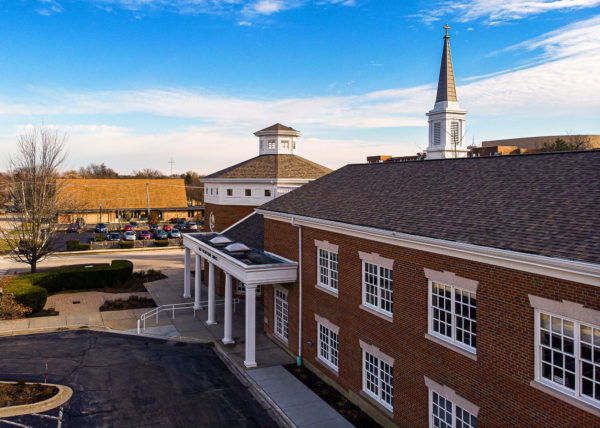This will be a sign to you: You will find a baby wrapped in cloths and lying in a manger.
Luke 2:12
This past Sunday, I asked our K-5th grade Sunday school class why they thought God chose to come into the world as a baby. Their answers were simple and thoughtful. As I’ve shared in this space before, I’m often in awe of the insights young children have and their ability to strip away the complex nature of things and just say what’s true. Someone offered that babies are peaceful and God wants us to have peace. Someone else said that babies make people happy.
Picture if you can a Sunday school class via Zoom (something that none of us would have fathomed ten months ago). I’m sitting in my kitchen, one child is sitting in a parent’s home office, someone else is propped up on a comfy bed, siblings often share a screen, someone else is at their kitchen table…and on and on. If you’re able to picture this scene, you can also likely understand that it’s not exactly the setting for deep consideration or reflection.
But in the hours following Zoom Sunday school, once I’ve closed my laptop and heaved yet another heavy sigh, thinking about what the kids are missing and what I’m missing, the time for reflection comes. And this Sunday, I found myself asking the question over and over again, “Why did God chose to come into the world as a baby?” What lessons are there for us in the manger? What are we to hear in the cries of a baby? What are we to take away from Jesus’ humble beginnings? What does the promise of Immanuel, God with us, mean for us today?
I don’t have the answers to any of those questions. I’m sorry if you were hoping to wrap up the whole “Meaning of Advent” conundrum that theologians have been pondering for centuries right here in this simple late December devotion. You didn’t imagine that the Children’s Ministries director, with a glue stick in one hand and glitter all over the other, had anything profound to say on the topic, did you? I’m laughing and I hope you’re laughing, too, at that image! But seriously, even though I don’t have the answers, that doesn’t stop me from returning to the questions again and again and wondering at the answers.
I enjoy a public radio program called On Being. Hosted by Krista Tippet, the weekly broadcast explores the limitless topic of faith. That’s hardly a complete description, but to try to describe what it is and how it is would be a devotion all its own. Anyway, a week ago or so I received an invitation via email to attend a virtual gathering put on by the On Being team called A Midwinter Gathering. It sounded interesting so I signed up, put the event on my calendar, and promptly forgot about it. But as luck would have it, I checked my email a few minutes before 4 o’clock on Monday afternoon and saw the reminder that the gathering was starting soon so I decided to log in. I have to admit I wasn’t fully engaged until I heard the question, “How will we be different?”. And for me, just like on Sunday after Zoom Sunday school, that question resonated and called forth other questions. What does this season ask of us? Who are we being called to be in this time of expectation? Of anticipation? Of promise? Of unknown?
While we are coming to the end of the Advent season, we are still in the midst of many other “seasons”. We are in a pandemic “season”. We are in an economic crisis “season”. We are in a racial justice “season”. And of course there are more. You may even be experiencing your own personal season – of growth or change or reckoning. It is my hope, that as we confront these collective seasons and also face our personal seasons, that we keep asking questions, that we keep digging for answers, and that the time spent in wondering leads us all to a place where we are open to the truth of Immanuel, God with us.


